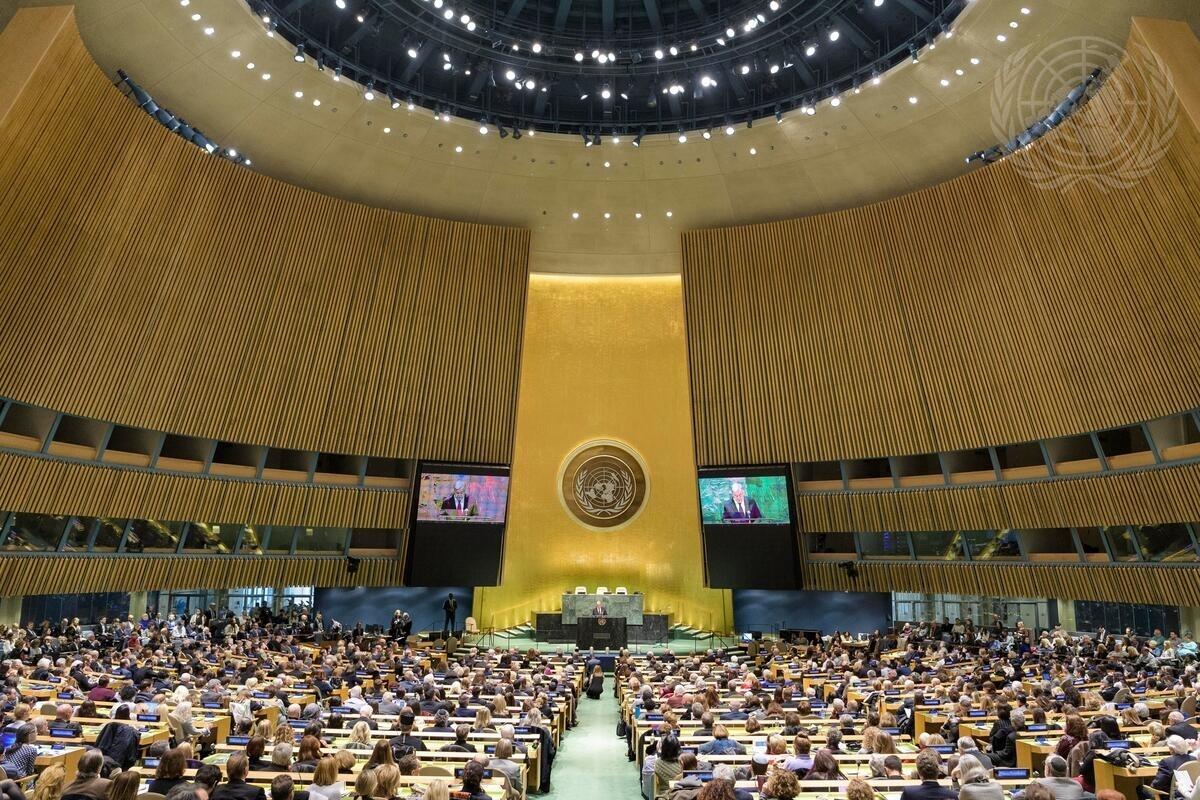Holocaust Memorial Ceremony "75 years after Auschwitz - Holocaust Education and Remembrance for Global Justice". Credit: UN Photo/Manuel Elías
The Holocaust and the United Nations Outreach Programme
The Holocaust and the United Nations Outreach Programme is located within the Outreach Division in the United Nations Department of Global Communications. The Holocaust and the United Nations Outreach Programme was established by United Nations General Assembly Resolution 60/7, with a simple and stark aim: to “mobilize civil society for Holocaust remembrance and education, in order to help to prevent future acts of genocide”. The Programme has established a global network of partners and developed versatile initiatives including educational resources, professional development programmes, panel discussions and exhibitions. The Outreach Programme is an expression of the United Nations’ commitment to countering hatred, and to building a world in which everyone can live with dignity and in peace.
Remember and reflect
The Programme works to ensure the voices of survivors are heard and heeded as a warning against the consequences of antisemitism, racism and other forms of discrimination and prejudice.
Today
The disturbing spread of neo-Nazism and other extremist groups and the growing climate of intolerance and antisemitism makes the work of the Programme particularly urgent. Through its educational activities about the Holocaust, the Programme calls on all generations to use their voice to stand up for human rights, challenge discrimination, antisemitism and racism, and defend essential democratic values in their communities.
Commemoration
The Programme leads the annual observance of the International Day of Commemoration in memory of the victims of the Holocaust on 27 January. This day was chosen by the United Nations General Assembly to mark the liberation of the Auschwitz Birkenau German Nazi Concentration and Extermination Camp (1940-1945). The Programme works with member states, and provides support to United Nations around the world to organize Holocaust remembrance and education activities.
Education
Working in partnership with leading institutions in Holocaust and genocide education, the Programme has developed a wide variety of educational resources. Many of these resources have been translated into the six official languages of the United Nations and have been made available to the global network of United Nations offices and educators.
Working together
The Programme has built a global network of partnerships with civil society, governments and Holocaust institutions. These partnerships have enabled the Programme to create impactful educational resources, organize effective professional development workshops and extend the work of the Programme to a wider audience, youth in particular. The Programme represents the United Nations at the International Holocaust Remembrance Alliance, an intergovernmental body that aims to garner political and civil society support for Holocaust education, remembrance and research.
Outreach
The Programme organizes year-long Holocaust education and remembrance outreach to amplify its themes of resisting antisemitism and prejudice, and defending human rights. Outreach activities include civil society briefings, roundtable discussions featuring the world’s leading experts in Holocaust and genocide studies, Holocaust survivors and United Nations officials; teacher and student workshops and film screenings. Through supporting the United Nations offices, Holocaust education and remembrance activities have taken place in over 70 countries around the world and reached thousands.

